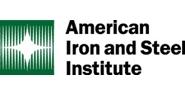Government/Policy

June 12, 2017
AISI Recommends NAFTA Improvements
Written by Sandy Williams
While the Trump administration has proposed a complete renegotiation of the North American Free Trade Agreement, the American Iron and Steel Institute (AISI), which represents domestic steelmakers, has affirmed its support for the continuation of NAFTA, albeit with some improvements and modernization to the 23-year-old trade pact.
In a letter to the United States Trade Representative’s office, AISI President and CEO Thomas Gibson said the U.S. steel industry has benefited from NAFTA and offered five recommendations to consider in any renegotiations: strengthen rules of origin and enhance regional value content requirements; promote trade enforcement and coordination; establish enforceable currency disciplines; establish disciplines on the conduct of state-owned enterprises; and improve customs procedures and coordination and upgrade border infrastructure.
The first recommendation suggests that rules of origin and regional value content should be updated to incentivize the use of North American steel in manufactured products that are steel-intensive, such as automobiles.
Second, AISI suggests that the United States, Canada and Mexico collaborate on steel-related issues that distort the market, such as overcapacity, dumping, subsidies and circumvention.
Third, enforceable currency disciplines should be added to the NAFTA agreement to set precedent for other agreements made with non-NAFTA nations. Gibson notes that the International Monetary Fund has provisions against currency manipulation, but lacks enforcement mechanisms to make the provisions effective. The NAFTA currency enforcement should build on the IMF provisions, he
Fourth, although few state-owned enterprises exist in NAFTA, they are not prohibited as long as such enterprises abide by the rules of the agreement. AISI suggests that the definition of SOEs be expanded, possibly using the Trans-Pacific Partnership wording as a template. Strengthening the rules and definitions of SOEs would “ensure that those that compete with private sector companies do not receive financing or other benefits that unfairly advantage them, do not receive preferential legal or regulatory treatment and observe a high degree of transparency.”
Lastly, streamlining existing customs procedures would benefit the shipping and receipt of steel for manufacturers.
“Reducing burdensome and in some cases redundant reporting requirements would facilitate trade, make manufacturing more efficient and enhance border security by allowing resources to be used in a more effective manner,” Gibson said. “Upgrading border infrastructure and limiting bottlenecking would also facilitate North American trade and economic growth, make trade along the borders more efficient and create jobs.”
AISI believes the promises of NAFTA were achieved for the U.S., Canadian and Mexican steel industries.
“The agreement has resulted in stronger and more efficient supply chains, increased exports and investments, and helped the industry to remain globally competitive. It has also encouraged and facilitated better cooperation with Canada and Mexico to address common problems we face with other trading partners. While the agreement as implemented has been beneficial for the steel industry, AISI also believes the recommendations outlined above would improve it, make the U.S. steel industry stronger and create jobs in the process,” Gibson said.







